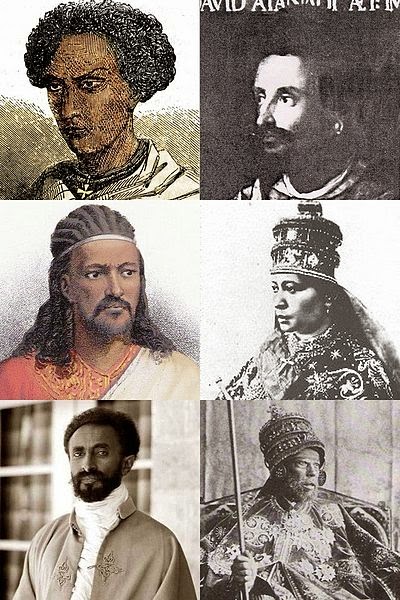My Culture
Culture! I guess they say everyone has one. For status let me introduce myself, my name is Walelign Kebede. A last born of eight siblings, I was born in Ethiopia and raised in Nairobi. My family had to move from Ethiopia due to political instabilities in the country at that time. My father was born in ethiopia west Gojjam region, a province located in north-western Ethiopia. While my mother was born in Southern Ethiopia in Moyale. Gojjam people are also known as Amhara, since the language which they speak is Amharic. Approximately, Amarah people are about thirty million population wise. The Amhara people used to be ruled by kings.1st row: Sahle Selassie • Lebna Dengel
2nd row: Tewodros II • Zewditu
3rd row: Haile Selassie • Menelik II
 One of the greatest pride of Amhara people is the victory over the Italian empire which tried to conquer Ethiopia. The Battle of Adwa also known as Adowa, or sometimes by the Italian name Adua was fought on 1 March 1896 between the Ethiopian Empire and the Kingdom of Italy near the town of Adwa, Ethiopia, in Tigray. It was the climactic battle of the First Italo-Ethiopian war, securing Ethiopian sovereignty. The landscape of Adwa.
One of the greatest pride of Amhara people is the victory over the Italian empire which tried to conquer Ethiopia. The Battle of Adwa also known as Adowa, or sometimes by the Italian name Adua was fought on 1 March 1896 between the Ethiopian Empire and the Kingdom of Italy near the town of Adwa, Ethiopia, in Tigray. It was the climactic battle of the First Italo-Ethiopian war, securing Ethiopian sovereignty. The landscape of Adwa.
Amhara people are also known for their rich culture when it come to the moral conduct and ethics. Children are taught to always greet elder people with two hands and to bow their heads as they do so. Also Amharic language varies from how you address people of different genders and age. For example the way a small child will address his parent or elder siblings differs from how they would address their peers,

 Every culture in the world tend to have their own type special food. For the Amhara people Injera is the staple food. Injera is made out of wheat flour. It's a tradition for Amhara people to have a bunna after every meal, bunna is the ethiopian coffee served in a small tinny cup. Another riches that is being emphasis in my people is the, beautiful traditional clothing.
Every culture in the world tend to have their own type special food. For the Amhara people Injera is the staple food. Injera is made out of wheat flour. It's a tradition for Amhara people to have a bunna after every meal, bunna is the ethiopian coffee served in a small tinny cup. Another riches that is being emphasis in my people is the, beautiful traditional clothing.



No comments:
Post a Comment